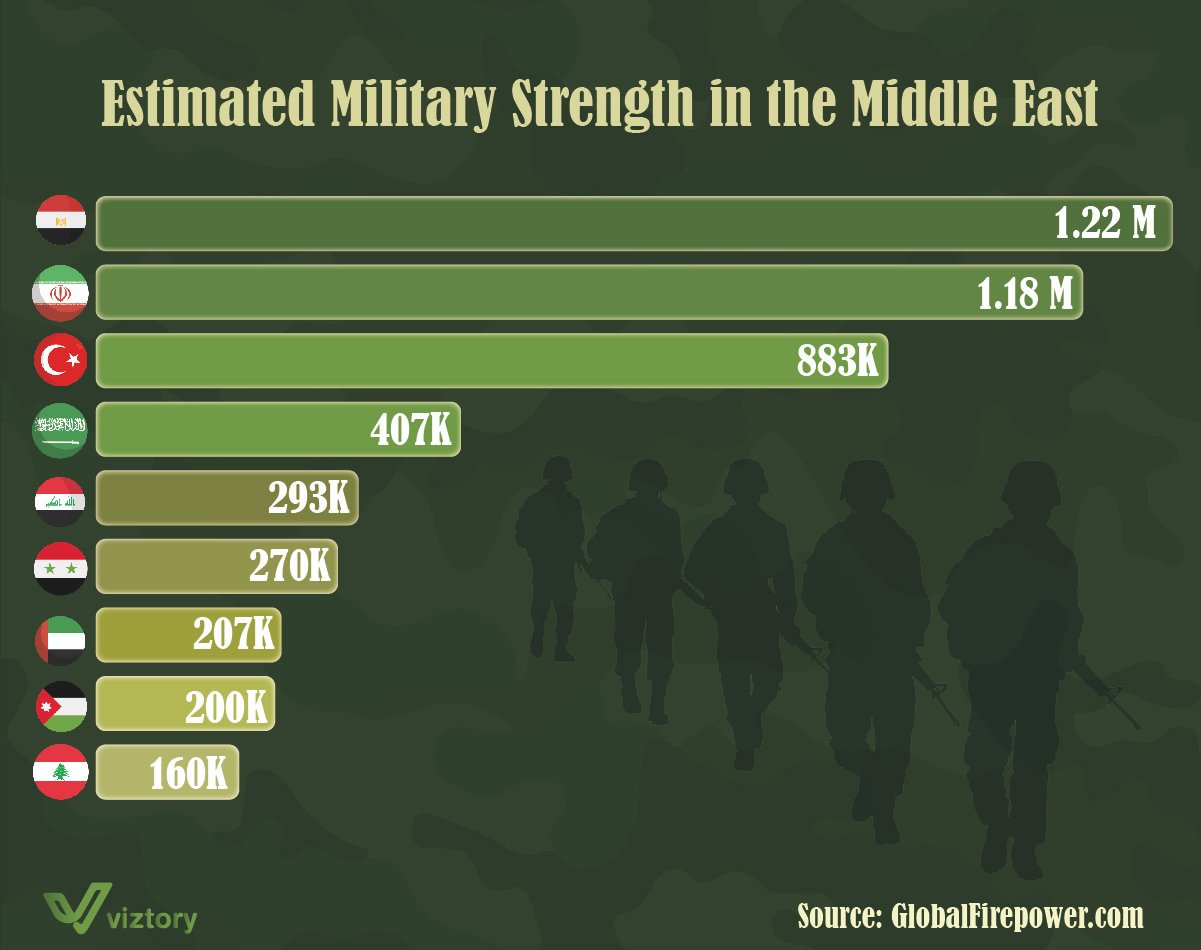Military Power in the Middle East: Balance of Power and Geopolitical Dimensions
-
Sep, Tue, 2024
Military Power in the Middle East: Balance of Power and Geopolitical Dimensions
The Middle East is a vital and sensitive region on the geopolitical map, where diverse international and regional interests converge. The balance of military power in the region is one of the key factors shaping this equilibrium, both in local conflicts and in international strategies toward the region.
Military Power: Key Players
The displayed image shows the distribution of military power among the main countries in the Middle East, highlighting the military dominance of Egypt, Iran, and Turkey in terms of active personnel. This distribution reflects the importance these countries place on enhancing their military strength as a means to achieve internal stability and safeguard their regional interests.
Egypt, the largest military power in the region with around 1.22 million troops, plays a central role in various regional and international issues. The Egyptian military boasts advanced capabilities, not just in numbers but also in military technology and training. This makes Egypt a key player in diplomatic and security efforts in the Middle East, whether in the Palestinian conflict or in countering terrorist threats.
Iran, with the second-largest military force in the region at approximately 1.18 million troops, relies heavily on its manpower and the development of its missile and technological capabilities to bolster its influence. Iran is actively involved in multiple regional conflicts, such as in Syria and Yemen, and supports allied groups in other countries, amplifying its military and political clout.
Turkey, which possesses the third-largest military force with 883,000 troops, is a member of NATO, which enhances its significance as a key Western ally in the region. Turkey is involved in many regional conflicts, either through direct military interventions or by supporting armed factions in conflicts in Syria and Libya.
Saudi Arabia, a prominent regional power with 407,000 troops, leverages its financial capabilities to acquire the latest military equipment and technology. The kingdom plays a central role in the Yemeni conflict and seeks to secure its interests in the face of growing Iranian threats in the region.
Geopolitical Dimensions of Military Power
Military power in the Middle East reflects sensitive regional balances that affect the stability of the region. With increasing tensions between Iran and Saudi Arabia, and ongoing conflicts in Syria, Yemen, and Iraq, the military plays a major role in shaping the future of the region. Major powers such as the United States and Russia have direct interests in supporting and guiding their allies in the region.
Additionally, countries like the United Arab Emirates and Jordan, though smaller in terms of military size compared to the larger powers, play significant strategic roles, either through participation in military coalitions or providing logistical and technological support to their allies.
Conclusion
Military power in the Middle East is not just about numbers; it is a tool for achieving broader political and geopolitical goals. In light of the ongoing regional challenges, this military strength remains crucial in determining the political future of the region, whether through open conflicts or diplomatic efforts toward stability.

